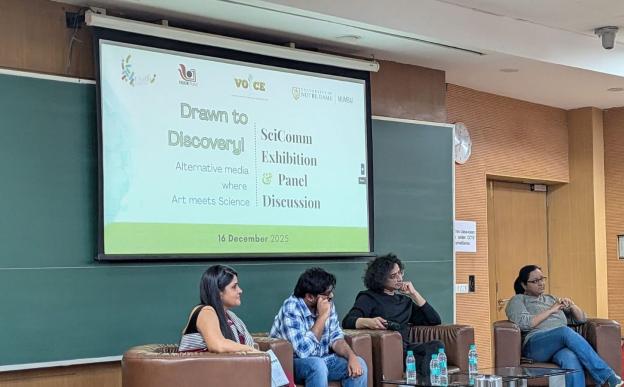An important aspect in the life of social animals is to gather information from others in their group. Young members of the group also learn how to forage, feed, evade predators and attract mating partners from older members. Scientists from Indian Institute of Science Education and Research, Kolkata explore how Zebra fish, that live in shoals of 20 individuals in the wild, learn informations from their partners in a laboratory environment.
The Indian Institute of Science Education and Research (IISER) Pune on Tuesday launched the VOICE Fellowship 2025
Pune/
